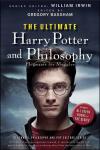
Hey there, people!
So I’m not, strictly speaking, a “normal” 19 year old guy. I spend inordinate amounts of time sitting in front of my computer, one of my favourite pass times is reading, I detest physical activity and one of my all-time heroes is Stephen Fry. But I’m not that unusual, and while I do have a great love for knowledge, I’m quite picky about where I get that knowledge from. I prefer to get my information from sources that I find both entertaining and intellectually engaging. Often, I find myself favouring the entertainment aspect just a little. Unfortunately, one of the topics I’m interested in is philosophy, and studying philosophy involves spending considerable amounts of time reading books with daunting titles like “The Genealogy of Morals” and “Meditations on First Philosophy”. Now don’t get me wrong, those books are both fantastically rewarding reads (they’re definitely intellectually stimulating) and I think the world might just be a better place if more people read them (carefully), but they’re just not… that… fun.
Philosophy has a bit of a PR problem, and has had for a few years. A lot of people think it’s just a load of pseudo-intellectual bull crap that isn’t of any real value to society, or that it’s just an incredibly dry and stuffy subject, or both. Of course, none of these ideas are true! I could – and might – write a whole post just on that one subject, but this post is about a series of books that have been and are being written in an attempt to adress the underlying issue; the Blackwell Philosophy and Pop Culture Series. These books have been around for a while now, but I only just discovered them the other day, and I just finished reading “The Ultimate Harry Potter and Philosophy: Hogwarts for Muggles”. As far as I’m concerned, it’s a real gem, and if the other books in the series live up to it, I think these people might just be on the right track. One thing they show beyond any doubt is that popular culture is completely saturated with philosophy, whether we realize it or not.
The thing about books like these is that they manage to make learning fun, and while that learning might not be as broad and deep as that which might be had from a more formal source, that aspect of fun is vitally important. I’m more likely to remember a philosophical theory if it’s presented to me in an interesting and funny manner, and I’m more likely to take an interest in a philosophical movement if my introduction to it is one that I find to be entertaining. I think there’s often a resistance amongst certain intellectuals to the whole idea of popularization, because it’s seen as something that threatens the integrity of a subject. But the whole point of academic research and thinking – at least as I see it – is to enrich human life through reflection and the accumulation and spreading of knowledge, and that enrichment can’t happen in a vacuum.
Obviously, popularization cames with a few problems. It’s practically impossible to take a complicated topic, like the mind/body debate, and discuss it in a short, funny essay without a certain degree of simplification. Context and other vitally important bits of information have to be left out in favour of keeping things concise and interesting. Some people might be persuaded to think of this as a “fatal flaw” of this kind of popularization, but personally I disagree. Any form of information communication is going to have some problems, because communication is difficult. A “popularized” account of Kant’s Categorical Imperative might be a little over-simplified, but a more traditional, academic approach (favouring information and preciseness over entertainment value) may well be too dry. When reading a dense, academic essay on a complicated topic, it’s easy to start to lose focus and drift off, thus missing important information even though it’s present in the text. That’s why these latter kinds of essay’s need to be read over and over again, just as the former kind need to be taken as more of an introduction/summary than an infallible source of knowledge.
Anyway, the main thing I wanted to say is that the book was great, and I encourage people with an interest in fun philosophy to go check the series out. The writers have already covered a lot of ground, with books centred on subjects as diverse as X-men and The Big Lebowski. Now I’m going to go read about the philosophy of el Duderino.
Cya!
Link to the series’ website:
Related articles
- Is Philosophy Important? (2012) (jwgray.wordpress.com)


